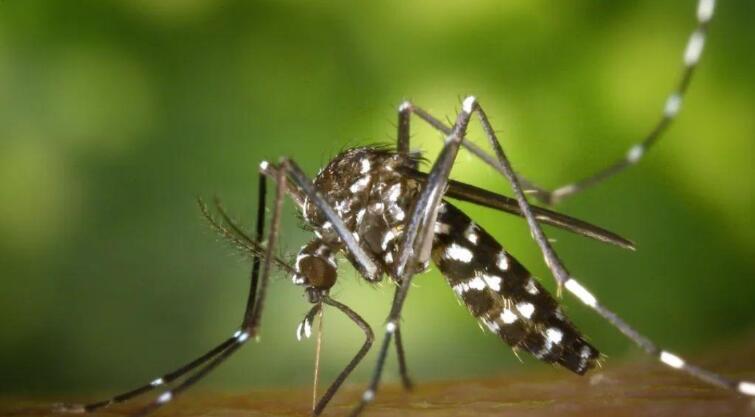Using mosquitoes to kill mosquitoes-“The United States will release more than 140,000 genetically modified mosquitoes.” Florida will release 144,000 genetically modified male Aedes aegypti mosquitoes within 12 weeks. The news came out. Few people’s hot discussion, of course, strictly speaking, the United States has already begun to release it, and the new report has clearly stated it.
Can the modified mosquitoes really kill the existing mosquitoes? Whether it will cause an impact on the ecosystem is now difficult to judge, but from a scientific standpoint, scientists’ idea is to release genetically modified mosquitoes to reduce the number of Aedes aegypti and control dengue fever, Zika virus, The spread of diseases such as yellow fever.
So the purpose is very good, but it also arouses everyone’s concerns about the ecosystem. Although genetically modified mosquitoes cannot survive after mating, they will not affect the ecosystem. There is indeed no explanation for the time being. Reverse examples have appeared. Not only did the “mosquitoes kill mosquitoes” not work well, but they also caused more serious problems.
Mosquito
Mosquitoes are the most common creatures in our lives. It can be said that the living area of humans is ubiquitous and the distribution range is also very wide. Nowadays, with the evolution of mosquitoes, many areas can even see its footprints even in winter. . There are many types of mosquitoes. So far, there have been 3 subfamilies of mosquitoes recorded in the world, including Megamosidae, Anopheles and Culex subfamily. There are more than 370 species of mosquitoes found in China, including Anopheles and Culex More than half of the mosquito species belong to the three genera Mosquito and Aedes mosquito.
Although the mosquito population is very large, and even in some areas, it is still in a state of flooding, but under natural conditions, the male mosquitoes will die about 7 to 10 days after mating, and they can live up to 1 to 2 months in the laboratory. The female mosquito’s life expectancy It is longer and can live for 1 to 2 months, and has lived up to 4 months in the laboratory.
The main reason why mosquitoes are hateful is that they suck blood, and when they suck blood, they also transmit some viruses, which are the dengue fever, Zika fever, and yellow fever we mentioned above. According to incomplete statistics, In human history, the number of deaths due to mosquito-borne diseases in the world is millions within one year. The typical recorded data is-in 1929, about 2 million people died of malaria in the world. This is the effect brought by mosquitoes.
So so far we all hope to control the mosquitoes. However, we said that mosquitoes are reproducing on a large scale, and their reproductive ability is extremely strong. The fastest batch of mosquitoes hatches after one or two days after laying eggs. Adult larvae have the ability to suck blood in 2 to 3 days, so it is really too difficult to vigorously kill mosquitoes. This is why the “mosquitoes to kill mosquitoes” plan is now adopted.
1 billion genetically modified mosquitoes open! Is “killing mosquitoes with mosquitoes” really good?
The United States has released “transgenic” mosquitoes this time, mainly to kill Aedes aegypti. Aedes aegypti is a small black mosquito with a white vertical streak on the middle breast scutellum. This is also the most poisonous mosquito in the world today. One, it is mainly the transmission medium of dengue fever. The mosquitoes cultivated in the United States this time use gene editing technology to change the sex of the mosquitoes. When the cultivated mosquitoes mate with wild female mosquitoes, they will only produce male offspring and will not produce females, thus continuously killing and reducing the local population. The number of mosquitoes.
Judging from this plan, there is indeed a trend to reduce mosquitoes. After all, there will be no female offspring, so there is no plan to breed the next generation. At the same time, it also ensures that the mosquitoes will not be completely extinct, but whether this plan will work or not has yet to be verified. Because it is still in the “experimental” stage.
If this plan is effective, the United States will further expand the release of transgenic mosquitoes in the future. Now it is only being tested in Florida, which means that the release has already begun. The plan is for 1 billion mosquitoes. This should be the first batch, but It is estimated that 12,000 will be released every week, and it is planned to continue the release for 12 weeks, which is 144,000, so there is only more than one.
So on the whole, 1 billion genetically modified mosquitoes have officially begun to be released, but the number is actually more than 1 billion (the difference in reported data), and the specific effect remains to be investigated. However, Brazil has also carried out genetic modification of mosquitoes. Not only did it fail to kill the mosquitoes, but a super mosquito appeared, which is more difficult to kill, so now it has also caused many people’s concerns.
Brazil’s genetically modified mosquito project “failed” and created super mosquitoes
Brazil has also carried out the release of “genetically modified mosquitoes”, and to prevent diseases from yellow fever, dengue fever to Zika virus transmitted through mosquitoes, but this experiment did not change the number of mosquitoes, but appeared stronger ” “Super mosquitoes”, at the very beginning, it was true that the mosquitoes after gene editing showed “inhibition of the number of mosquitoes” from the outside world, but the effect was not long. Soon the local mosquitoes rebounded, which was discovered through analysis.
Brazil’s genetically modified mosquito, Aedes aegypti (OX513A), can mate with local mosquitoes and has produced rare but viable hybrid offspring. They can continue to reproduce. What is the situation? This shows that the external mosquitoes and human gene-edited mosquitoes have “adaptability”. The artificially introduced genes make the mosquitoes stronger, and their resistance to other forms of mosquito control methods such as insecticides and drug resistance may also be possible. Increased, so the Brazilian genetically modified mosquito program “failed” and super mosquitoes were also bred.
So now they are testing this super mosquito in the U.S. in Florida. In fact, they don’t know what they are. They say that if the effect is good, they will release further genetic mosquitoes, but now it is clear that the consequences are not clear. But once the effect of Brazil appears and “super mosquitoes” are cultivated, the impact on the ecosystem will inevitably be even greater. Many people may also say, why not use natural enemies to control the breeding of genetic mosquitoes?
There are many natural enemies of mosquitoes, such as dragonflies, frogs, spiders, mosquito fish, etc., but it is obvious that natural enemies can no longer satisfy the growth of mosquitoes, so I thought of this method. At the same time, everyone has seen dragonflies, frogs, etc. in recent years. When biological populations are not adapted to the earth’s environment, they are also undergoing a large-scale decrease. This completely frees up breeding space for mosquitoes, so the environment is also contributing to the rapid growth of mosquitoes.






